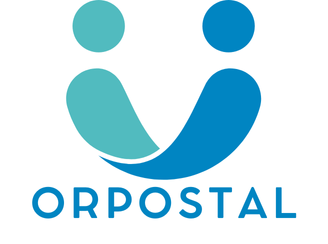Overview of Hypertension and Its Health Impacts
Hypertension, commonly known as high blood pressure, affects millions worldwide and poses significant health risks. Defined as consistently elevated blood pressure levels, hypertension is often referred to as a “silent killer” due to its insidious nature; individuals may be unaware they have the condition until serious health complications arise.
Hypertension is prevalent across various demographics, impacting both young and older adults. The persistent pressure exerted by the blood against artery walls can lead to severe problems if uncontrolled. Key health complications associated with unmanaged hypertension include an increased risk of heart disease, stroke, and kidney failure. These underscore the critical need for effective blood pressure management.
Also to see : Exploring the Impact of Long-Distance Running on Mental Toughness: Unveiling Psychological Benefits
Maintaining healthy blood pressure levels is essential for overall well-being. Regular monitoring and lifestyle modifications, such as a balanced diet, regular physical activity, and stress reduction, play vital roles in managing hypertension. Additionally, medications may be prescribed when lifestyle changes alone are insufficient. Understanding the importance of this management helps mitigate the significant health risks linked to hypertension. Awareness and proactive management are fundamental in preventing the adverse effects of this common but dangerous condition.
Understanding Mindfulness Meditation
Mindfulness Meditation is a mental practice centered on bringing one’s attention to the present moment, facilitating non-judgmental awareness. Historically, its roots can be traced back to ancient eastern traditions, primarily Buddhism. This practice involves cultivating self-awareness and attention regulation through various techniques.
In the same genre : Proven Tactics for Alleviating Anxiety Among College Students: A Comprehensive Guide
Mindfulness practices often include breathing exercises, body scans, and guided visualizations. Engaging in these techniques enhances the practitioner’s ability to remain focused on the present. For instance, focusing on the rhythm of one’s breath can help centre the mind, preventing it from wandering to past regrets or future anxieties.
Scientific studies offer robust support for mindfulness as a beneficial practice. Research reveals that mindfulness meditation can lead to reductions in stress, improvements in emotional regulation, and enhancements in cognitive flexibility. For example, a study published in a reputable journal found that individuals who practiced mindfulness consistently exhibited lower stress hormones and improved psychological resilience.
The definition and practice of mindfulness meditation encourage individuals to observe their thoughts and feelings without criticism. Emphasising repeated exercises elevates concentration and empathy, paving the way for a more balanced life. As understanding grows, so does the global community of practitioners eager to integrate mindfulness into their everyday lives.
Mechanisms of Mindfulness Meditation on Blood Pressure Regulation
Mindfulness meditation has become a popular practice for achieving stress relief and blood pressure reduction. Understanding its mechanisms is crucial for appreciating its impact on health.
Stress Reduction and Blood Pressure
A significant connection exists between stress and hypertension. Elevated stress levels can lead to increased blood pressure, contributing to cardiovascular issues. Mindfulness meditation acts as a stress relief tool, helping individuals manage stress effectively. By encouraging a state of calm and awareness, this practice helps moderate the body’s stress response, potentially lowering blood pressure over time.
The Role of Relaxation Response
The relaxation response, triggered by mindfulness practices, plays a vital role in reducing blood pressure. During meditation, the body begins a process of deep relaxation, countering the ‘fight or flight’ reaction instigated by stress. Through regular mindfulness sessions, practitioners activate this response, leading to a measurable decrease in sympathetic nervous activity and, consequently, blood pressure.
Impact on Heart Rate Variability
Heart rate variability (HRV) is another essential factor connecting mindfulness to cardiovascular health. Enhanced HRV is indicative of a well-regulated autonomic nervous system. Mindfulness meditation fosters increased HRV by promoting relaxation and balance in heart rhythms. Better HRV is associated with lowered stress, improved cardiovascular health, and, crucially, effective blood pressure management.
Review of Scientific Studies
Recent research has focused on the relationship between mindfulness meditation and its impact on hypertension. Several key scientific studies have been conducted to investigate this link, exploring how such practices might contribute to a reduction in blood pressure.
Clinical trials have shown that mindfulness can effectively lower blood pressure in individuals with hypertension. One significant study indicated that participants who regularly practiced mindfulness meditation experienced a noticeable decrease in their systolic and diastolic blood pressure levels. This suggests that mindfulness could be a promising intervention for managing hypertension.
Study methodologies play a crucial role in the reliability of these findings. The trials often involve controlled groups, with participants being randomly assigned to meditation or standard care groups. Such rigorous methods ensure that results are not skewed by external factors. Furthermore, a variety of participant demographics have been considered, including diverse age groups, ensuring that the findings are generalizable across different populations.
Implications for hypertension management are profound. Mindfulness meditation could become a low-cost, non-invasive alternative or complement to traditional hypertension treatments. As more research emerges, it may further solidify mindfulness as a key strategy in holistic health approaches. This could pave the way for wider acceptance and integration into clinical health practices globally.
Practical Mindfulness Techniques for Hypertension Management
Exploring mindfulness techniques can be a valuable addition to managing hypertension. Implementing a daily practice of mindfulness meditation is one proven way to reduce stress, a significant factor in elevated blood pressure levels. Techniques such as focused breathing or body scans can be incorporated into daily routines, allowing individuals to develop a sense of calm and awareness.
To seamlessly incorporate mindfulness into everyday activities, try engaging in mindful walking, eating, or even cleaning. For instance, when walking, focus on the sensation of your feet touching the ground or the rhythm of your breath with each step. This simple yet effective approach makes everyday tasks an opportunity for mindfulness practice.
Several resources are available to guide individuals through structured mindfulness sessions. Apps like Headspace and Calm offer a variety of guided meditations suited for beginners and seasoned practitioners alike. These tools provide audio-guided sessions that help foster concentration and mindfulness skills.
A practical approach to incorporating these techniques involves setting aside specific times each day for practice, starting with just five minutes and gradually increasing the duration as comfort and experience grow. By fostering a habit of mindfulness techniques in daily life, individuals can support their overall well-being and contribute to effective hypertension management.
Case Studies and Testimonials
Understanding the impact of mindfulness through personal stories offers valuable insights into its real-world benefits. Numerous individuals have shared testimonials illustrating how mindfulness significantly lowered their blood pressure. One noteworthy personal story is of an individual who, through daily mindfulness exercises, reported a consistent decrease in systolic blood pressure levels over six months. This illustrates the profound effect mindfulness practices can have on the body’s physiological responses.
Notable Case Studies
Several case studies bolster these personal stories, shedding light on mindfulness’s potential benefits for blood pressure management. In one prominent study, participants who engaged in an eight-week mindfulness meditation program saw noticeable improvements in their blood pressure levels. This structured approach demonstrated not only reduction in numbers but also an enhanced sense of well-being among participants, echoing individual testimonials.
Lessons Learned
The lessons learned from these testimonials and case studies highlight the importance of consistency in mindfulness practices for achieving the desired outcomes. Recommendations based on personal experiences often suggest starting with small, manageable sessions. Over time, increasing the duration and intensity can lead to sustainable benefits. Embracing mindfulness as a daily routine, therefore, is strongly advocated by those who have witnessed its transformative effects firsthand.
Benefits and Limitations of Mindfulness for Hypertension
Mindfulness meditation offers several notable benefits for individuals managing hypertension. Practising mindfulness regularly can help reduce stress, a significant contributor to high blood pressure. By fostering a state of relaxation and focus, mindfulness allows the body to lower stress hormones, enhancing heart health. Additionally, it encourages emotional regulation, assisting individuals in managing emotional triggers that might spike blood pressure.
However, mindfulness is not without limitations. While many find it beneficial, some might struggle with the discipline required for consistent practice. Results can also vary; not everyone experiences significant reductions in blood pressure purely through mindfulness. Some may face challenges integrating it into daily routines, due to time constraints or a lack of understanding of effective techniques.
To truly capitalize on the benefits of mindfulness, a holistic approach to hypertension management is essential. Combining mindfulness with other lifestyle changes, such as diet and exercise, can create a more comprehensive strategy. This approach allows individuals to tackle hypertension from all angles, promoting not only a physical wellness state but also enhancing mental and emotional well-being. By embedding mindfulness within this broader framework, individuals are likely to see more sustained improvements in their blood pressure and overall health.
Additional Resources and Support
If you’re committed to deepening your understanding of mindfulness meditation and its influence on hypertension, a wealth of resources is readily available. These tools can offer sustained support throughout your journey, fostering a more comprehensive grasp of mindfulness practices.
A variety of platforms provide curated guided meditations specifically designed to ease stress and promote relaxation. Apps like Calm and Headspace offer user-friendly interfaces that cater to different needs, making it easy to incorporate meditation into daily routines. With diverse categories, users can select sessions based on time commitments and mindfulness goals.
In addition to online support groups, local communities frequently host gatherings centred on mindfulness and stress reduction. Participating in these programs not only builds a sense of community but also enriches your practice by sharing insights and experiences with others.
For individuals looking to develop a structured meditation routine, numerous courses and workshops are designed to accommodate varying levels of expertise. These programs offer a progressive learning environment with guidance from experienced instructors.
Additionally, healthcare providers or mental health professionals can recommend practices tailored to individual health requirements, ensuring that mindfulness techniques are both safe and effective. Embracing these resources and engaging with support groups can make the practice of mindfulness a transformative part of managing hypertension.











